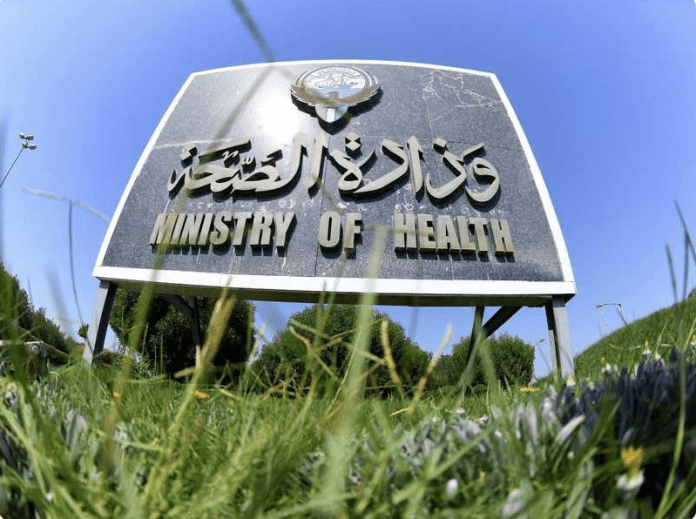The Kuwaiti Minister of Health, Dr. Ahmed Al-Awadhi, has emphasized the significance of medical team exchanges with China, expressing his desire to strengthen bilateral health relationships and share experiences related to the challenges confronting healthcare systems.
These remarks were made by the Kuwaiti minister during a ceremony hosted by the Chinese embassy, commemorating the 60th anniversary of the first Chinese international medical team’s deployment and the 47th anniversary of the Chinese medical team’s presence in Kuwait.
Over these years, the Chinese medical teams, consisting of 300 medical professionals, have provided healthcare to more than one million patients in Kuwait.
Dr. Al-Awadhi highlighted that the deployment of medical teams is an exemplar of their cooperation, rooted in an agreement between the two nations in the healthcare sector. He expressed pride in Kuwait being the first among the Gulf Cooperation Council countries to establish a four-decade-long, robust relationship with China.
Furthermore, he commended the Chinese medical team’s dedication, particularly in providing healthcare services at the Physical Medicine and Rehabilitation Hospital, where they employ cutting-edge traditional Chinese medicine techniques.
Kuwait has been the sole country with a continuous presence of a Chinese medical team since 1976 when the first group was dispatched.
During discussions at the ceremony, Dr. Al-Awadhi emphasized the benefits of embracing various medical practices globally, underscoring that it can lead to the treatment of challenging cases. He said he is delighted by the presence of the visiting Chinese medical team, as well as the one that has been stationed in Kuwait for 47 years.
Dr. Al-Awadhi also expressed a desire to enhance relations between the Ministry of Health and Chinese medicine, including the possibility of collaboration in organ transplant programs, particularly liver transplantation. He suggested that this could be explored during mutual visits and discussions between the two parties.
Regarding the potential involvement of Chinese expertise in hospital construction, Dr. Al-Awadhi indicated that it was premature to make conclusive decisions. However, he mentioned that initial exchange visits and the strengthening of cooperation in the healthcare sector could pave the way for such proposals.
Chinese Ambassador to Kuwait, Zhang Jianwei, highlighted Kuwait’s strategic importance to China and welcomed high-level visits as a means to advance their strategic partnership and broaden its horizons.
In response to questions about whether the American railway and port agreement might compete with China’s Belt and Road Initiative, Zhang Jianwei expressed the belief that the American corridor could benefit from the Belt and Road concept. He emphasized the importance of balance and increased cooperation for the collective benefit of the international community.
Zhang Jianwei elaborated on the Belt and Road Initiative, emphasizing its goal of connecting nations and establishing economic, political, trade, and banking corridors. He stressed that the current global climate requires unity and cooperation, with China playing a role in fostering solidarity and collaboration among nations.
He reassured that China does not seek competition with others and values actions over rhetoric. He welcomed initiatives that serve the mutual interests of all parties.
Zhang Jianwei also underscored the significance of China’s Belt and Road Initiative for regional countries, emphasizing its comprehensive and interconnected approach across various domains. He noted that China has become the primary trading partner for approximately 140 countries.
Additionally, he highlighted China’s cooperation with neighboring countries to build infrastructure, including railways, roads, and bridges, which enhances regional infrastructure. He disclosed plans for an upcoming Belt and Road Initiative conference in October, with Kuwait’s participation, as Kuwait was the first East region country in the Middle East to sign a cooperation document with China.
Zhang Jianwei reiterated his commitment to welcoming initiatives that promote stability in the region, emphasizing the vitality of the Belt and Road Initiative.
During the ceremony, the Chinese envoy shared remarkable statistics about China’s international medical teams, with 30,000 teams sent to 76 countries and regions, treating 290 million patients. He praised the Chinese medical teams as “miracle makers” who have made profound contributions to medical care, embodying the spirit of these teams.
Vice Chairman of the Jilin Provincial Health Commission of China, Jing Li, highlighted the integration of Chinese medicine into local daily life in Kuwait after 47 years of the medical team’s presence. He cited acupuncture, massage, and air cupping as practices that have become part of the routine for Kuwaiti citizens.
Jing Li noted the strong relationship between the two governments and the contribution of specialists in Chinese medicine sent by Jilin Province to Kuwait’s Natural Medicine Hospital since 1993.
He said he is optimistic about fostering deeper communication and cooperation by promoting the philosophy of Chinese medicine, particularly the concept of “treatment before infection.”
He stressed that “the Chinese team enjoys wide appreciation from citizens, as fans of Chinese medicine are increasing,” hoping to “enhance deeper communication and cooperation by spreading the philosophy of Chinese medicine (treatment before infection).”

















